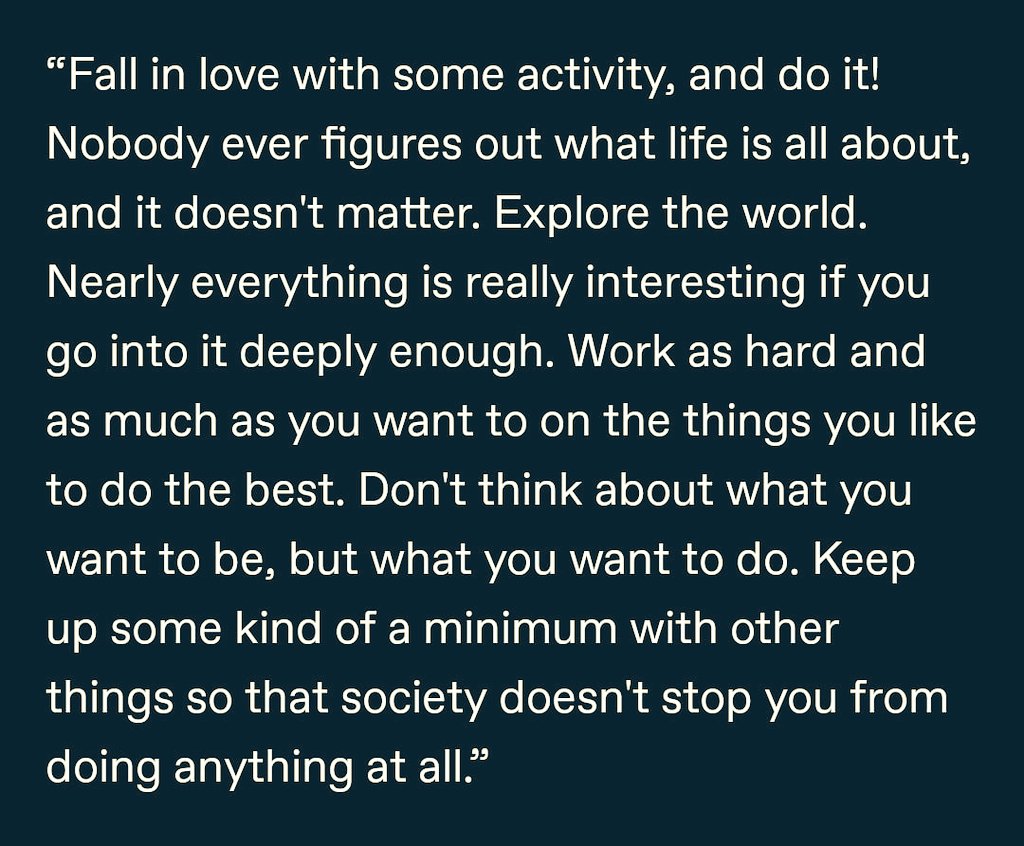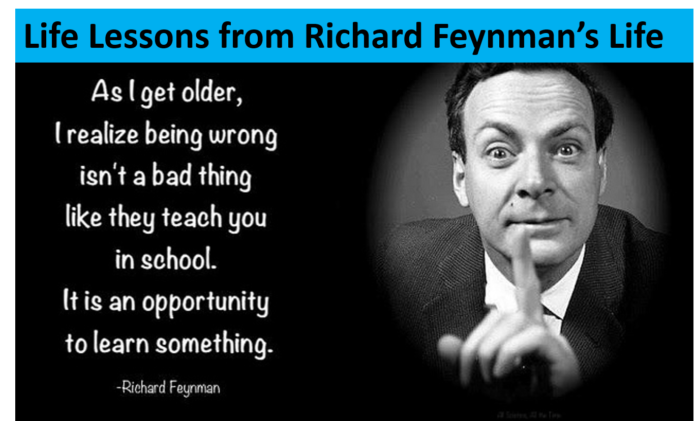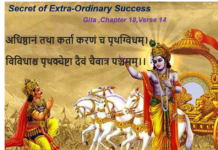This article is an attempt to shortlist 4 key lessons from Richard Feynman’s Life.
“If I have seen further,it is by standing on the shoulders of giants.” Isaac Newton wrote this in a letter to a fellow scientist Robert Hooke in 1675.
Famous author Shane Parrish has written something similar on his blog-post:
“It can be easy to look at great geniuses like Newton and imagine that their ideas and work came solely out of their minds, that they spun it from their own thoughts—that they were true originals. But that is rarely the case.
Innovative ideas have to come from somewhere. No matter how unique or unprecedented a work seems, dig a little deeper and you will always find that the creator stood on someone else’s shoulders. They mastered the best of what other people had already figured out, then made that expertise their own. With each iteration, they could see a little further, and they were content in the knowledge that future generations would, in turn, stand on their shoulders.
Standing on the shoulders of giants is a necessary part of creativity, innovation, and development. It doesn’t make what you do less valuable. Embrace it.”
Today let’s try to stand on the shoulders of Richard Feynman.
Leaders, entrepreneurs, and anyone who strives to do more can learn lot of lessons form Richard Feynman’s life and his unique way of working.
But Who Was Richard Feynman?
Richard Feynman was an American physicist .
He was a keen popularizer of physics by simplifying it through both books and lectures. Apart from that he was a Nobel laureate and had an extraordinary ability to explain complicated concepts in physics and mathematics in extremely simple and understandable manner.
He remains known as “The Great Explainer” — a moniker at least as deserved as his Nobel Prize, merited by his mesmerising explanations of such seemingly ordinary things as the magic of a flower, how rubber bands work, and why everything is connected to everything else.
Love What You Do !
This can be the first lesson from Richard Feynman’s life.
Richard Feynaman’s Childhood
I didn’t get to do as much as I wanted because my mother kept putting me out all the time to play.
From a young age, Feynman worked on all kinds of science experiments in his bedroom and unlike most other kids his age who were begging to be let out to play, he was rather forced by his mother to go out to play.
This speaks a lot about the alignment of his innate passions and curiosities with his work, and how when you end up working on something that truly aligns with your strengths, natural inclinations and so on.
In this way, you are far more likely to succeed extraordinarily well than merely going off with the crowd and doing some popular course because that’s what your parents or career counsellor told you would get you a safe and reasonably paid job.
Richard Feynaman’s Married-Life
A divorce complaint from his wife tells a lot about the man’s life and how he reached at the pinnacle of his field with “always-on” mode
Richard Feynman’s wife wrote in her complaint : “He begins working calculus problems in his head as soon as he awakens. He did calculus while driving in his car, while sitting in the living room, and while lying in bed at night.”
That tells a lot about the people who love what they’re doing.
Your brain is never able to stop working on it. When you wake up, your mind immediately drifts to that problem and stays there for the rest of the day.
Almost all who do great work operate in this “always-on” mode.
Don’t think about what you want to be, focus on what you want to do
If you do what you want to do, everything else will fall into place.
If you undertake tasks you want to do , your enjoyment will increase your productivity and enhance your focus.
Feynman did his best work when his curiosity, interest, and wonder were piqued.
“Fall in love with some activity, and do it!” Feynman used to say.
“Nobody ever figures out what life is all about, and it doesn’t matter. Explore the world. Nearly everything is really interesting if you go into it deeply enough. Work as hard and as much as you want to on the things you like to do the best. Don’t think about what you want to be, but what you want to do. Keep up some kind of a minimum with other things so that society doesn’t stop you from doing anything at all.”
Have A Curious Mind
In the book, Surely You’re Joking, Mr. Feynman!, Richard Feynman, a Nobel Prize-winning theoretical physicist, narrates a story about an ant he found near his bathtub.
Instead of killing or ignoring the bug, Feynman put some sugar out for his visitor and used a colored pencil to track the ant’s march back to its nest. When another ant emerged to collect more sugar, Feynman tracked its movements as well.
Feynman soon discovered that the ants used each other’s trails to find the pile of sugar he’d left out. He also learned that the ants continually improved the route from the sugar to the nest over time.
Tracking ants all day with colored pencils doesn’t exactly seem like a productive exercise. But for Feynman, that was never a consideration. He would let his curiosity guide him. He was always ready to tackle questions that interested him with focus and care.
For Feynman, productivity was less about work and more about exploring problems that intrigued him.
Have a sense of humor and be humble
Feynman was never one to dress up his sentences with fancy words and complex phrases. He tried to explain things clearly and with a touch of humor.
Feynman lived by a simple rule: “The 1st principle is that you must not fool yourself, and you are the easiest person to fool.”
The phrase tells a lot about his enduring modesty and acceptance that he was no better than anyone else. His most intense goal was to learn about the world and as such he did it with extraordinary precision and productivity.
In short ,don’t pretend to be better than others and don’t fool yourself into thinking you have all the answers. Like Feynman, be humble.
Hope my effort helped you a bit and you could get something for yourself from these lessons from Richard Feynman’s life !
If you only had one quote to live by, this quote by Richard Feynman should be more than sufficient.

He is also famous for popularizing a learning technique ,that’s known as Feynman Technique of Learning Anything. You can learn more about it by clicking on this link.
Hope you liked this article, if you’re interested to read another interesting article, please click on 15 Questions for Success.
10 claps




